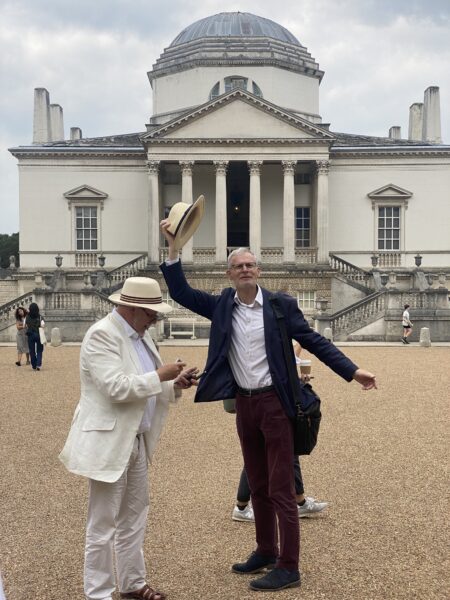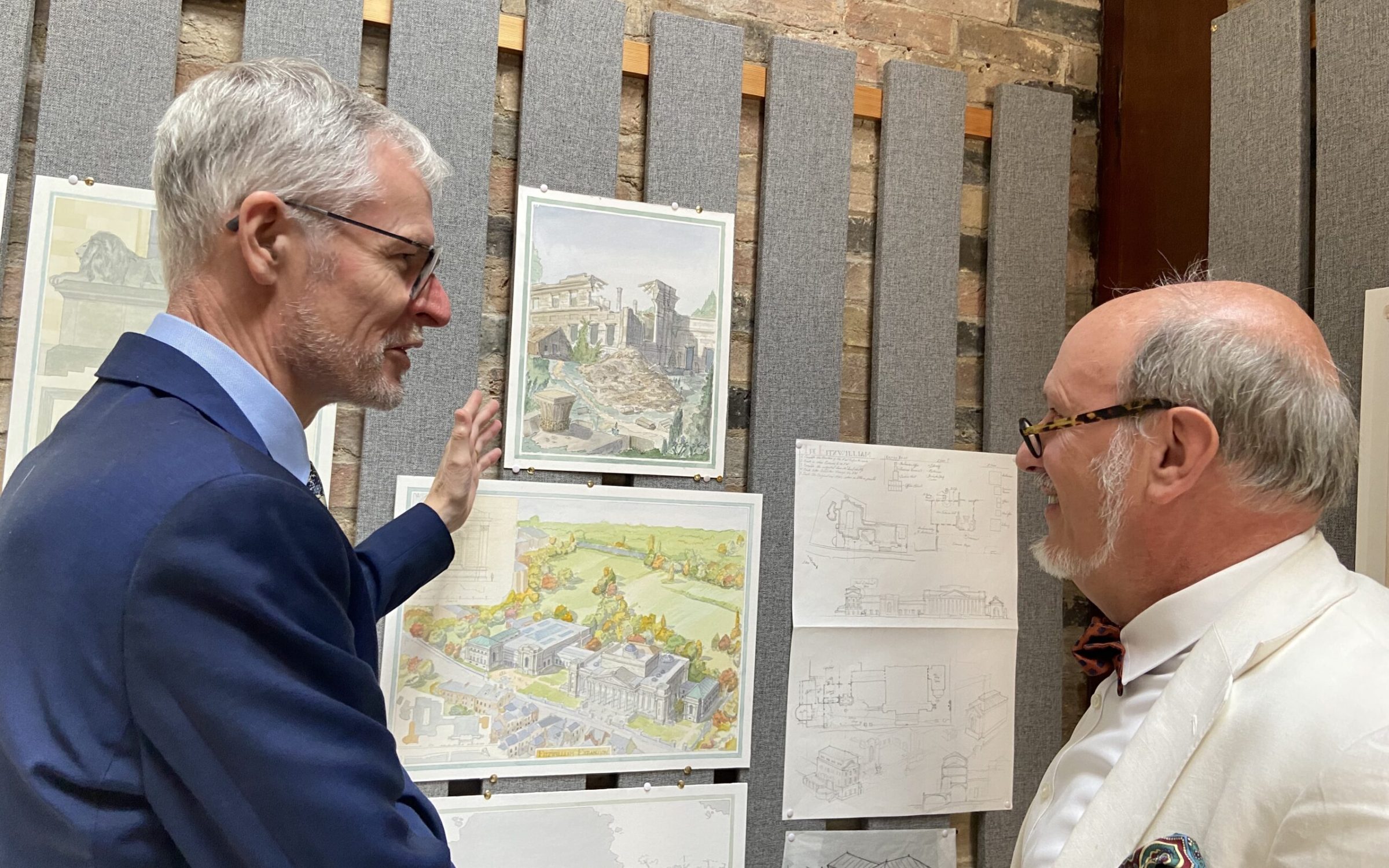Director Frank Salmon reflects on our first Summer School in Classical Architecture: ‘making underpins historical understanding’
When the Ax:son Johnson Centre for the Study of Classical Architecture (CSCA) was established at the University of Cambridge in October 2021 it was agreed that, alongside a regular programme of research activities, CSCA should endeavour to support the understanding of classical architecture among young architects by running a Summer School for them, on the premise that experience of ‘making underpins historical understanding’ and enriches new design. The CSCA was thus very excited and grateful when the Foundation not only agreed to underwrite its proposed programme for a first Summer School in 2022 but also did so to a level of generosity that allowed all but two (late applicants) of nineteen young people to take the course free of charge.
The Summer School curriculum blended together lectures on the principles and historical and contemporary examples of classical architectural design, site visits with privileged access to British buildings of the classical tradition both historical and new, and two studio projects – both based on the nearby Fitzwilliam Museum, designed in neo-classical manner in the 1830s by George Basevi and housing the University’s great art collections. The first project involved the students in making collaborative measured drawings of details of the great portico and its enrichments; the second required them to design a sympathetic extension to the Museum as a new home for the University’s Department of History of Art. It is drawings from these projects that are presented in this booklet.
As Director of CSCA, I would first and foremost like to thank the Foundation for having had faith in the Centre’s ability to mount the successful Summer School in classical architecture of which, I hope it will be judged, the present booklet gives ample evidence. By far the greater part of the organization – academic as well as practical – was undertaken to an extremely high standard by CSCA Assistant Director Elizabeth Deans, assisted by Dr Rebecca Tropp. By far the greater part of the design work was supported by Tiffany Abernathy in her role as the studio leader, in which she was assisted by Luka Pajovic, the CSCA’s architect PhD student. It is also appropriate here for me to acknowledge the key roles played by our Honorary Professors, John Simpson, Kerstin Barup and Clive Aslet, and to thank the thirteen other colleagues – historians and architects – who gave up their time to come and share their expertise with the School. The outcome of all the hard work by students and staff alike was truly spectacular – achieved in just five weeks of concerted effort but with a wonderful camaraderie and a lot of fun.
Dr Frank Salmon, Director of the CSCA
Associate Professor in History of Art, University of Cambridge




